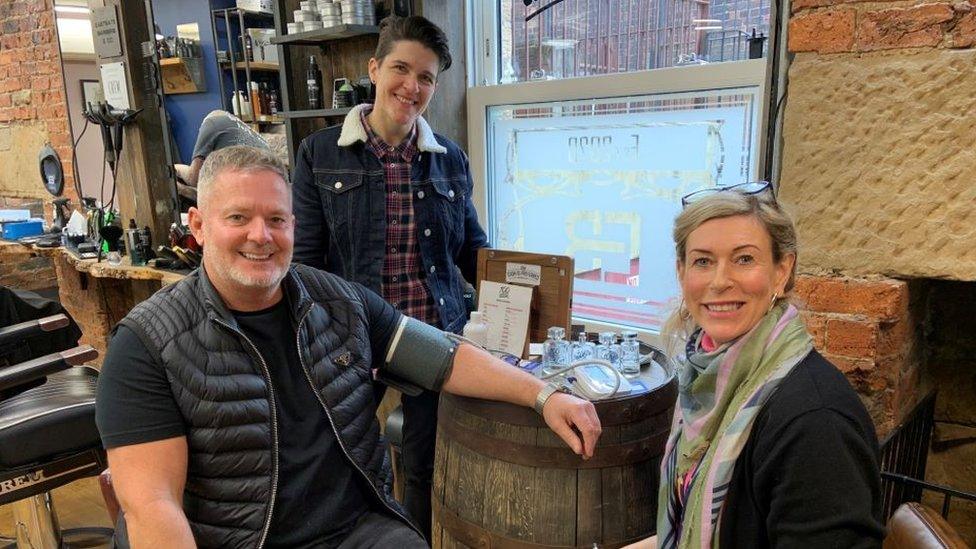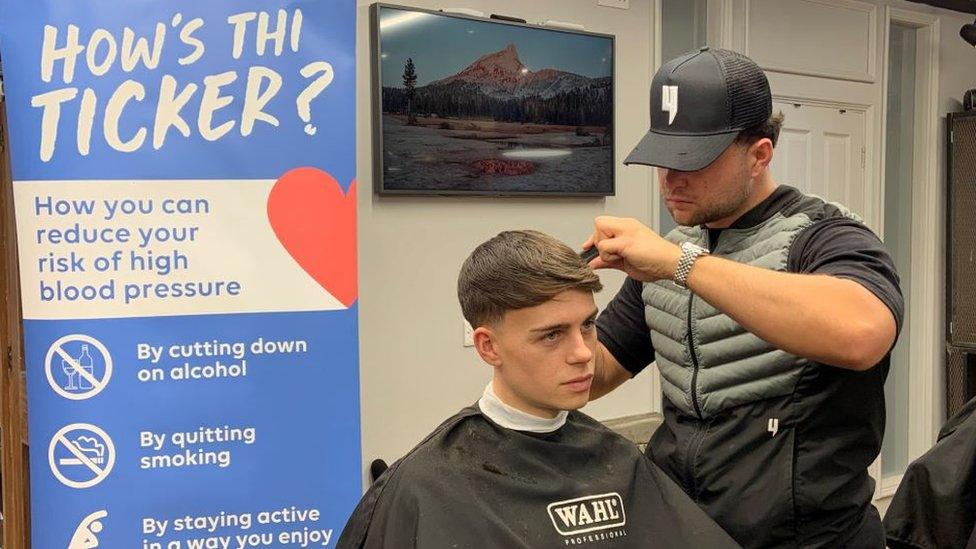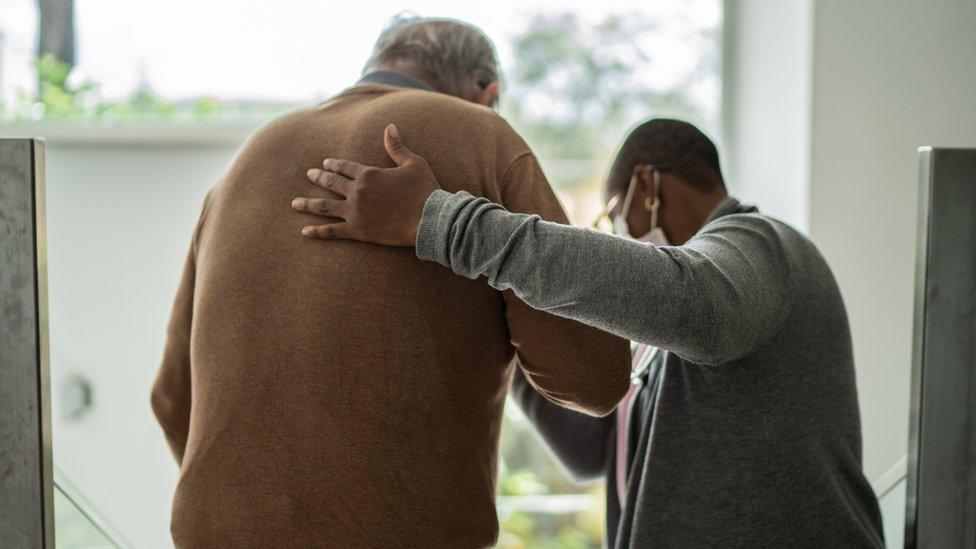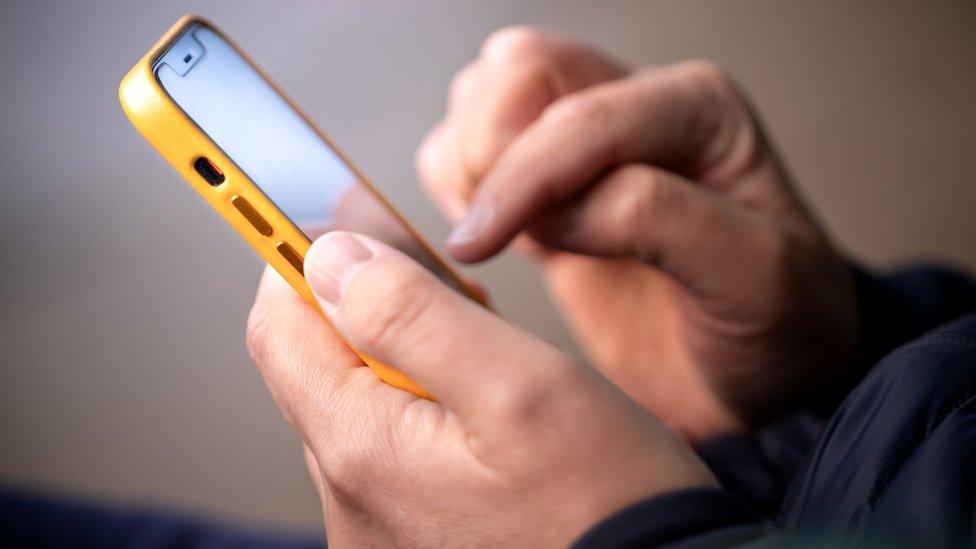Barnsley men targeted for blood pressure checks at barbers
- Published

Lee Tindle, owner of Eastgate Barbers, has his blood pressure checked by Kaye Mann (middle) and Louise Hunt
A health check service run at a barbers in Barnsley has seen several men referred to A&E as their blood pressure was found to be dangerously high.
The How's Thi Ticker public health campaign is based in the town's barbershops, libraries and market and targets middle-aged men.
Health practitioners involved in the scheme said they had so far checked the blood pressure of over 5,000 men.
Of those, 40% had been referred to their GP or local pharmacy, they said.
The service was launched after the Covid pandemic because research found that people were not going to see their GP in person as much and were missing routine checks.
Public health specialist practitioners Kaye Mann and Louise Hunt have been part of the campaign, which includes places such as the Eastgate Barbers, for the past 18 months.

Barbers, libraries and the market in Barnsley are all being used as bases for the health campaign
Ms Mann said the campaign, run by Barnsley Council, particularly targeted middle-aged men "because they're more reluctant to go to the GP, especially the men in Barnsley".
She added: "We have a very stoic population in Barnsley. It's an ex-mining town and we've got this saying that 'I'll be reight'."
The practitioners tried to identify those with high blood pressure because of the accompanying risk of heart attack and stroke, Ms Mann said.
"We've picked up lots of people in the community that we've had to ask to go straight to A&E because their blood pressure has been that high.
"They have no idea as often there's no symptoms."
High blood pressure was relatively easy to treat if it was caught early enough, Ms Mann said, adding that they had seen some "really good success stories".
"Lots of people have thanked us for picking it up and said they went straight to the doctor or the hospital and were told they were at a severe risk of heart attacks and stroke," she said.
"So, we're really saving lives, hopefully."

Follow BBC Yorkshire on Facebook, external, X (formerly Twitter), external and Instagram, external. Send your story ideas to yorkslincs.news@bbc.co.uk, external.
Related topics
- Published23 August 2023

- Published1 February 2024
